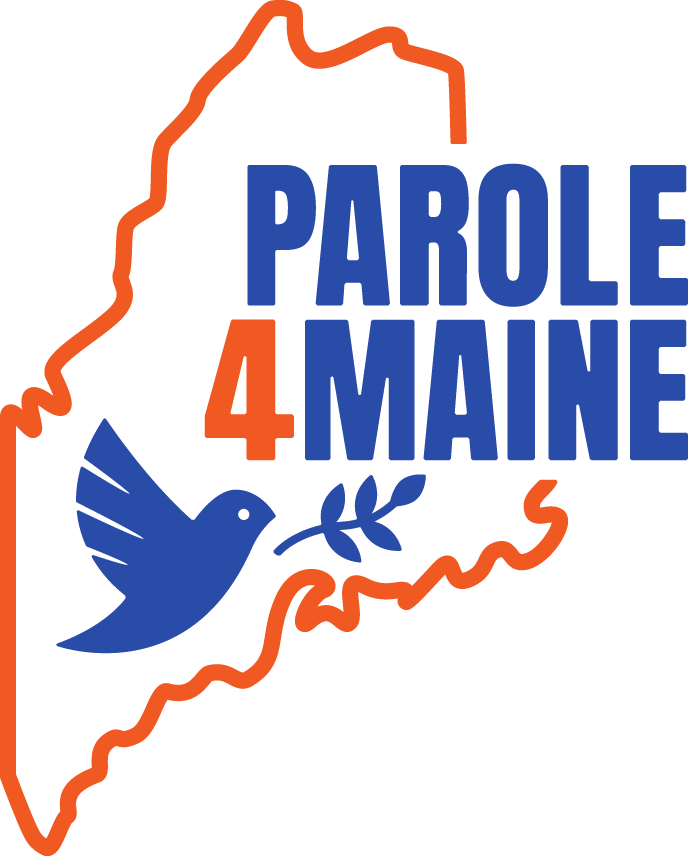The Parole Bill
Our landmark bill would restore parole throughout the state of Maine. Through consultation with Maine-based and nationwide experts, and pulling from the strongest precedent from a variety of states, our local coalition has created a bill that will inspire rehabilitation and make communities safer.
IMPORTANT COMPONENTS INCLUDED IN THE BILL: AN ACT TO SUPPORT REENTRY & REINTEGRATION INTO THE COMMUNITY
PAROLE BOARD
The bill includes new guidelines for the general structure, makeup, and governance of the parole board.
Sections §5823 - §5824
The seven members of the Board shall include a variety of professionals, people with lived expertise, and those with special training or experience as outlined in (34-A M.R.S.A. §5202)
The governor shall appoint members of the board, subject to review and confirmation by the Legislature’s Judiciary Committee
Board member terms shall be for four years, staggered for regulated turnover, with each member serving a maximum of eight years
The board shall meet at least once a month and may meet more often as needed
The board exists within the Department of Corrections
PAROLE ELIGIBILITY & RELEASE GUIDELINES
The bill outlines provisions that govern who is eligible to be reviewed by the parole board — but does not guarantee anyone’s release.
Section §5825
People serving a life sentence with eligibility for parole are eligible after 20 years
People serving a sentence between 5 and 60 years are eligible after ⅓ of their sentence—people serving a sentence less than five years would not be eligible for parole since the Supervised Community Confinement Program addresses this population
Eligibility alone does not guarantee release. The Parole Board is required to develop administrative release guidelines to evaluate people’s applications for parole
Under the new bill, the parole board must use evidence-based risk assessment criteria when evaluating parole applications.
Section §5828
The parole board shall develop administrative release guidelines, including factors that afford support & protection to victims, measure actual risk to community safety, and assess likelihood of success based upon a meaningful parole plan
The parole board shall develop a risk-assessment scale and evaluate its effectiveness at least every 5 years
While on parole, the parolee is under the custody of the warden or chief administrative officer of the correctional facility from which the parolee was released
PAROLE HEARING
The bill’s requirements for parole hearings include scheduling, access to records, ability to correct inaccurate/incomplete information, legal representation, and grant/denial conditions.
Section §5826
Parole hearing is scheduled within 60 days of the parole applicant’s eligibility date
Applicants shall be given access to their records at least 30 days prior to their hearing
Applicants may be represented by legal counsel of their choosing. Both the applicant and counsel may present testimony at the hearing
If parole is granted, the parole board is required to set individualized guidelines governing the conditions of release
If parole is denied, no more than 30 months may pass between parole hearings
VICTIM SUPPORT
The bill requires support for victims of crime, establishing parole-specific rights and ensuring they receive timely notification throughout the parole process.
Section §5827
Read more on our Victim Support page
Download our Victim Support PDF
VIOLATIONS, REVOCATION
The bill includes general provisions governing what happens when someone violates terms of their parole.
Sections §5829, §5830, §5831
The board shall develop administrative revocation guidelines, including factors that center public safety and address new crime, seriousness of violations, remediation planning, and potential modification
REPORTING
The bill requires the parole board to collect and analyze data related to the outcomes of the decisions for granting, revoking, or denying parole.
Section §5833
The board shall collect data related to whether the person has been rearrested or returned to prison within 3 years following their release to parole.
The board shall report aggregate data annually to the joint standing committee of the Legislature having jurisdiction over corrections matters.
bring back parole
CONTACT YOUR STATE SENATOR + REPRESENTATIVE
